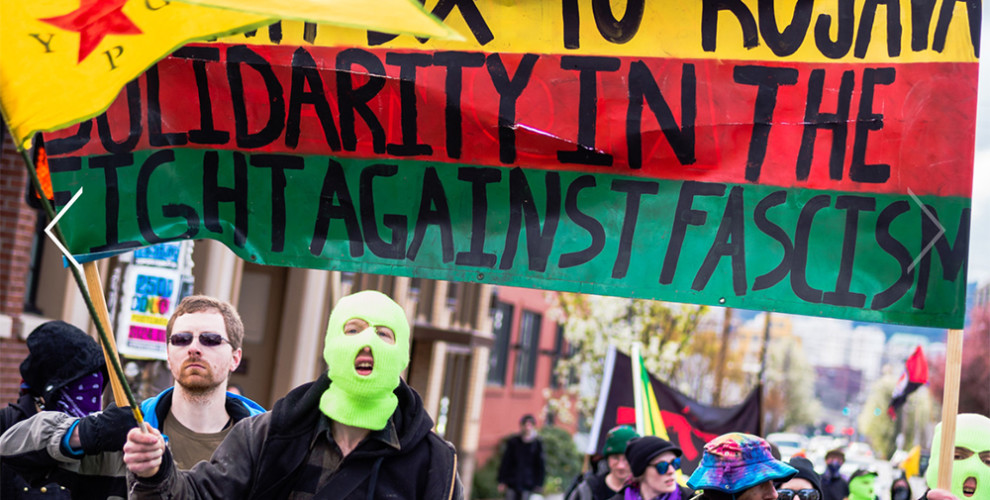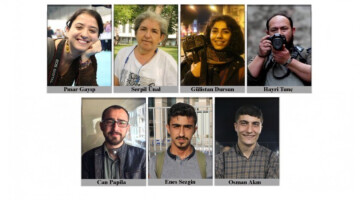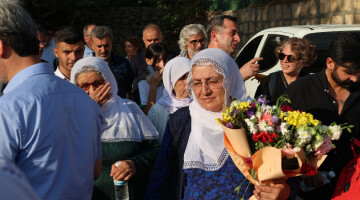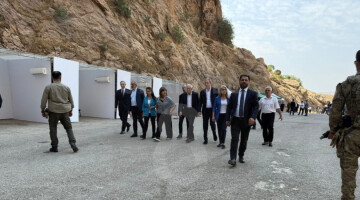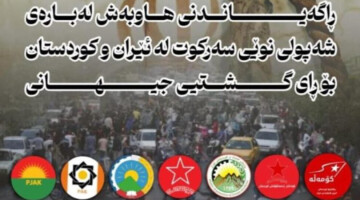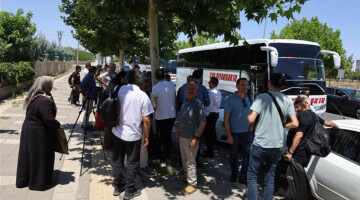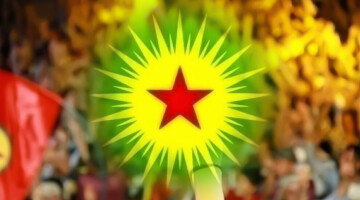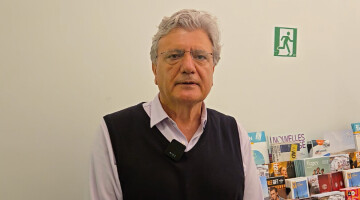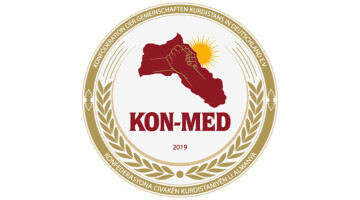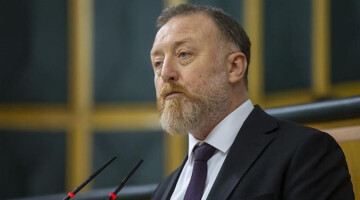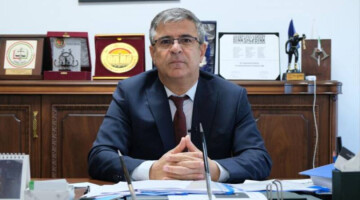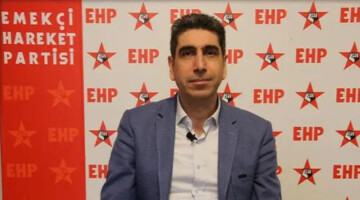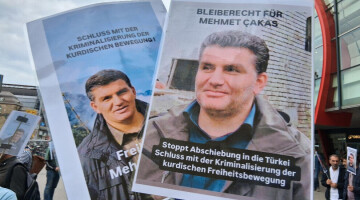Hundreds of people demonstrated in 12 cities as Kurds and their friends answered the call for a World Afrin Day on March 24th with one of the largest displays of solidarity with Rojava ever seen in the United States.
Kurdish community organizations, solidarity groups, and leftist groups planned a diverse array of actions— including protests, discussions, film screenings, phone banks, and other events—to raise awareness of the situation in Afrin and demand that the U.S. act. They called for increased military and political support for Rojava, sanctions on Turkish officials and companies involved in the invasion, and an end to all U.S. arms sales to Turkey.
In Portland, Oregon, demonstrators blocked off a main street, carrying banners that read “Defend Afrin!” and “Solidarity in the fight against fascism!” After the march, they screened a documentary on Rojava and wrote letters in solidarity to the Kurdish people under attack.
Asked why he attended, American YPG volunteer Zafer Baran (Kevin Price) said that “as the free people of Rojava exercise their right to self-defense against the invading genocidal fascists, those of us all over the world who stand in solidarity with the people of Rojava must continue to spread awareness of the atrocities of the Turkish state and its jihadist murderers.”
In Olympia, Washington, solidarity groups affiliated with the local demonstration sought donations for humanitarian aid for the people of Afrin. Their efforts raised over $1,000, which will be given directly to relief efforts. This work was especially important as mainstream humanitarian organizations continue to neglect Afrin and the victims of Turkish war crimes there.
Demonstrators in Los Angeles protested outside the local Turkish consulate. Çeko Kurd, a local organizer, said that the demonstration was “trying to bring the atrocities and murder committed by the second largest army in NATO— the fascist Turkish government, led by the butcher Erdogan— to the attention of the American people.” He noted that the American people all have a responsibility to stand with the Kurds while they are under attack, and should do what they can to convince the US government to stop Turkish terrorism. “Is this what the American government and people call an ally?” he questioned. “Someone who indiscriminately shells, attacks, and massacres innocent civilians, including children and women? Someone who funds Al-Qaeda, Al-Nusra, and ISIS?”
Ellen Catalina took an overnight bus from San Francisco to Los Angeles to attend the demonstration there. “I did it because the mainstream media isn’t doing a good job of informing the public that a NATO ally, Turkey, has invaded and occupied its neighbors, that they are conducting a policy of ethnic cleansing against their neighbors, that their forces are looting and displacing a peaceful population,” she said. “I wanted people working in the Turkish consulate to understand that there isn’t blanket approval from Americans for their government’s actions. And my message to the people in Rojava is: We are grateful for the hard, dangerous work you did defeating Daesh in Northern Syria. We hear you, we see you, and we are working to amplify your voices.”
The demonstration in Boston attracted about 40 people, occurring just before the local Newroz celebration. Several Kurdish demonstrators there drew the connection between the history of Newroz resistance and the resistance in Afrin, as well as the work that Kurds in America and their supporters must do to support that resistance.
In Washington, DC, demonstrators marched from the Turkish Embassy to Sheridan Circle, where Erdogan’s bodyguards brutally attacked peaceful protestors last May. A Kurdish woman from the area who attended the demonstration said “I see it as my duty to raise awareness among Americans and also to show my support for my brethren in Afrin. Afrin is a symbol of democracy and true inclusion; of coexistence with one another as well as with nature! Fascism and Islamism are threats to humanity as a whole, not just to the Middle East— and it is time for global solidarity against our common enemy!”
Turkish fascists attempted to distract from the demonstration in New York City. As Maria Vondritch, a local activist, recounted, “they spent the entirety of the four-hour demonstration heckling us, shouting hateful and ignorant comments. They kept yelling that our cause means nothing because there is no Kurdistan on a map— to which I thought, isn’t that why we are here?”
Activists believe that the day of action will spark a new era of solidarity with Rojava in the United States. “It was inspiring to be able to convene with other New Yorkers who are passionate about the Kurdish cause, and to see so many similar demonstrations of solidarity all around the world, Vondritch said. “If we keep agitating for justice in Rojava, then hopefully our government will stop ignoring the abuses of the Turkish state.”
A Chicago organizer, Sam Humiston, says he believes such actions can lead to greater transformation, and urged the American people to do more. “When the bosses and the landlords abuse us while threatening our lives if we are to stand up for ourselves, we start to put in the work one step at a time. Power builds. Have local music shows or speaker sessions where donation or cover proceeds go to the Afrin Fund. Hand out literature on Rojava and Serok Apo's ideas at these places, and talk to people about how they can get involved. What I think is most important of all for us is to learn and embrace the ideas of Serok Apo and the Rojava Revolution, to let these values influence our personalities, to practice them in our everyday life, and to walk among the people with whom we must share these ideas and principles with. Supporting Rojava means bringing the revolution here and that begins with our most everyday aspects of social life.”

